Senegalese cinema, a significant pillar in the realm of African film, has been instrumental in bringing the stories and perspectives of the Senegalese people to the world stage.
Despite facing numerous challenges, including limited funding and a lack of infrastructure, the industry has produced an array of compelling films that have garnered international acclaim.
Emerging in the early 1960s, shortly after Senegal gained its independence, the country’s cinema has often been a platform for social and political commentary.
Senegalese filmmakers frequently grapple with the nation’s colonial past, the complexities of modern African identity, social inequality, and other issues that impact the lives of the Senegalese people.
Best Senegalese Movies
The following list presents some of the best films in Senegalese cinema. Each of these films, with their unique narratives and stylistic approaches, offers a window into the Senegalese experience.
They exemplify the remarkable creativity and resilience of Senegalese cinema, highlighting its capacity to engage audiences with compelling storytelling that transcends borders.
1. Atlantics (2019)
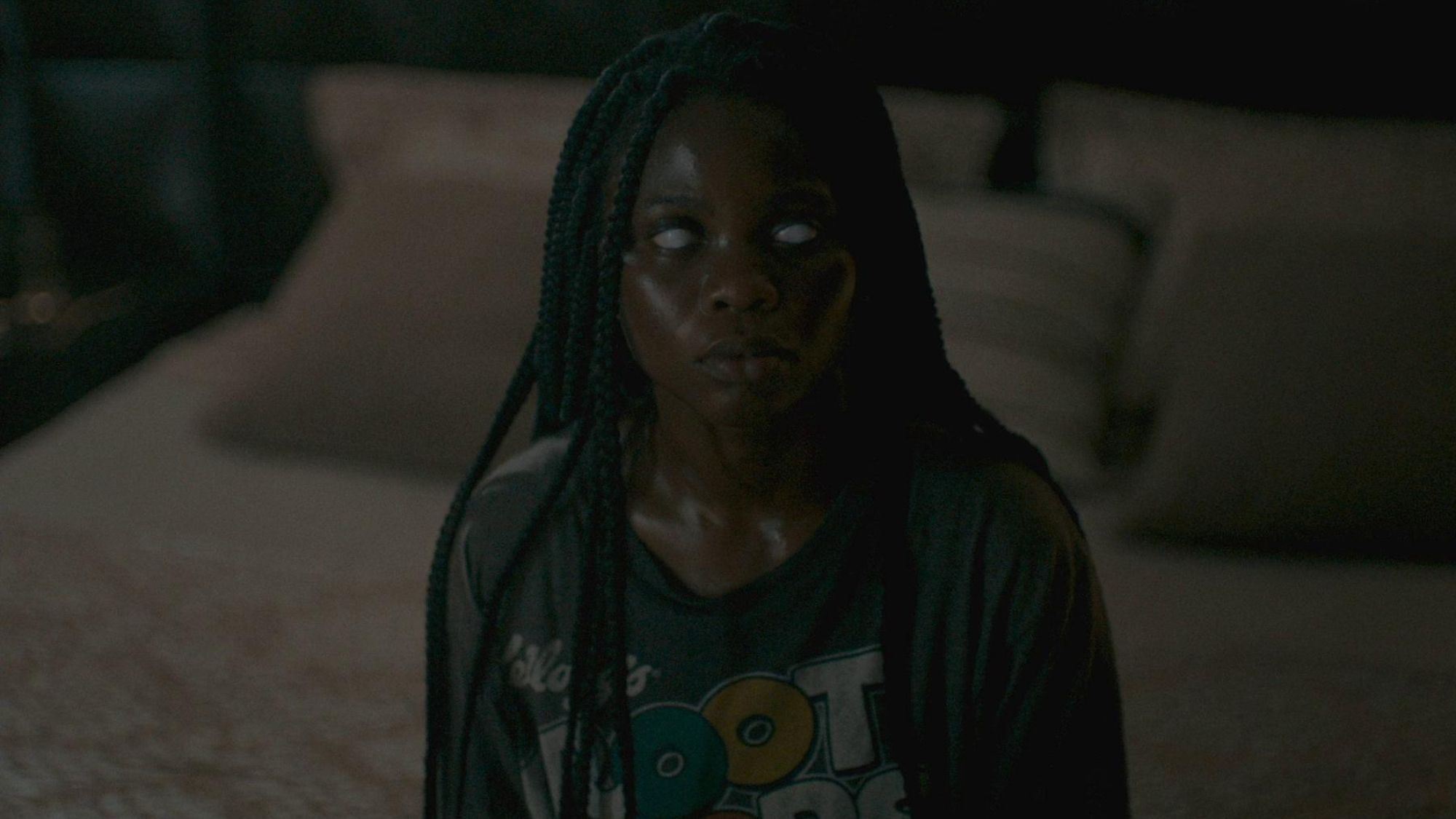

Atlantics
Every love story is a ghost story.
2019 • 1h 46min • ★ 6.8/10 • France
Directed by: Mati Diop
Cast: Mame Bineta Sane, Ibrahima Traore, Amadou Mbow, Nicole Sougou, Aminata Kane
Arranged to marry a rich man, young Ada is crushed when her true love goes missing at sea during a migration attempt — until a miracle reunites them.
“Atlantics” is a 2019 internationally co-produced drama film directed by Mati Diop. It premiered at the 2019 Cannes Film Festival and received critical acclaim for its unique storytelling and atmospheric visuals.
The film is set in Dakar, the capital city of Senegal, and centers around the story of Ada (Mama Sané), a young woman who is in love with Souleiman (Ibrahima Traoré), a construction worker.
However, Souleiman and his co-workers have not been paid for months, leading them to embark on a treacherous journey by sea in search of better opportunities.
After Souleiman and the others go missing at sea, mysterious events start to occur in the lives of the women left behind. Ada begins to experience supernatural occurrences, and a detective is brought in to investigate these strange happenings.
“Atlantics” is a poetic and haunting film that combines elements of social realism, magical realism, and supernatural elements.
It explores themes of love, loss, migration, and the intersection of the spiritual and material worlds. The film also touches on social and economic issues faced by the people of Dakar.
Mati Diop’s directorial debut in “Atlantics” garnered critical acclaim for its evocative cinematography, mesmerizing atmosphere, and thought-provoking narrative.
The film won the Grand Prix at the 2019 Cannes Film Festival and received numerous accolades and nominations internationally.
Please note that “Atlantics” may be available on various streaming platforms or through DVD releases, depending on your region and availability.
- Amazon Prime Video (Video on Demand)
- Brendan Gleeson (Actor)
- Risteard Ó Domhnaill (Director) - Angela Antle (Writer) - Risteard Ó Domhnaill (Producer)
- English (Playback Language)
- English (Subtitle)
2. Yao (2018)
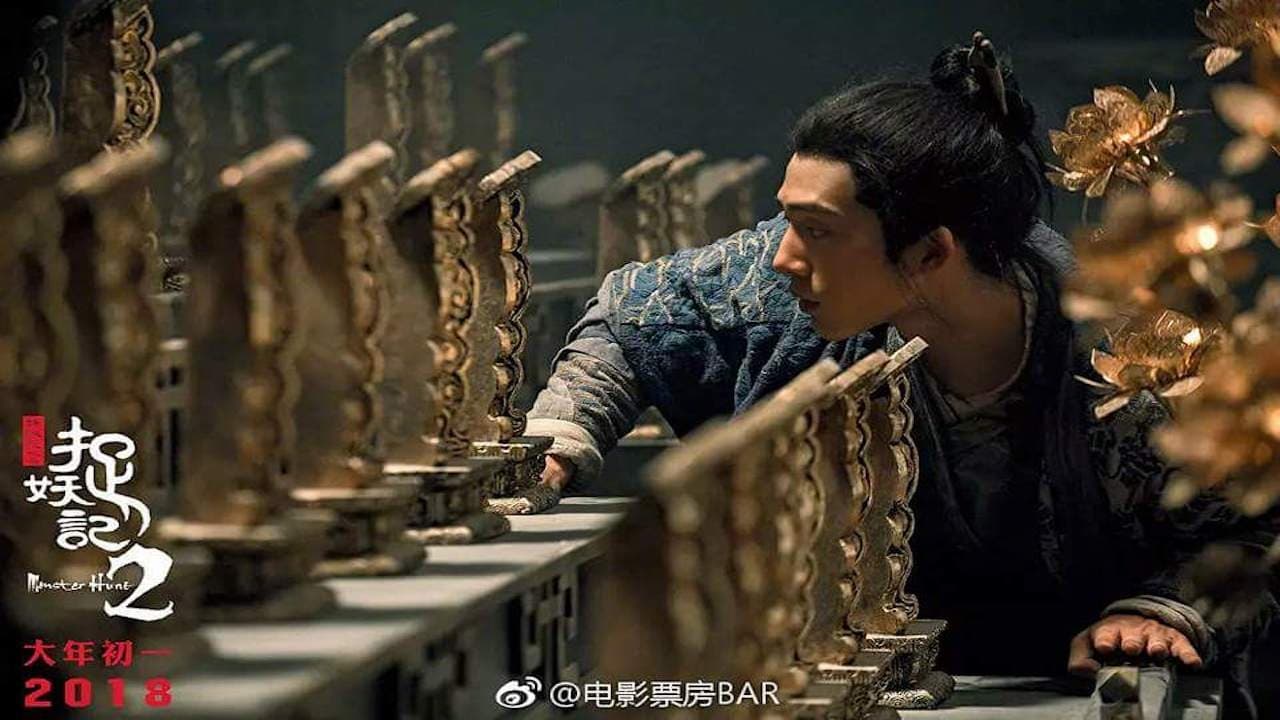
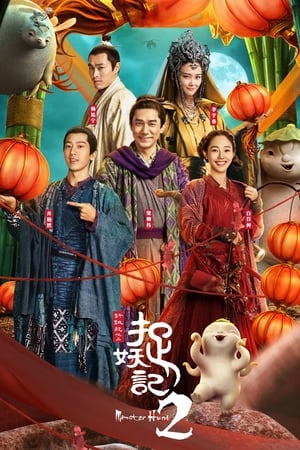
Monster Hunt 2
2018 • 1h 50min • ★ 6.7/10 • China
Directed by: Raman Hui Shing-Ngai
Cast: Tony Leung, Bai Baihe, Jing Boran, Chris Lee Yuchun, Tony Yang
The sequel to Monster Hunt. Set in a world where monsters and humans co-exist, the franchise tells the story of Wuba, a baby monster born to be king. Wuba becomes the central figure in stopping an all-out monster civil war.
“Yao” is a 2018 French comedy-drama film directed by Philippe Godeau.
It tells the heartwarming story of a young Senegalese boy named Yao (played by Lionel Louis Basse) who embarks on a journey to meet his idol, the famous French actor Seydou Tall (played by Omar Sy).
The film takes place in rural Senegal, where Yao lives with his mother and dreams of one day becoming a great actor.
When he learns that Seydou Tall is visiting Dakar for a book signing, Yao sets out on an adventurous and often humorous trek to meet his idol. Along the way, he encounters various challenges and unexpected encounters that shape his understanding of the world.
For more about Senegal cinema, you can check out our overview of the best films from Senegal and our country-by-country exploration of global cinema.
As Yao travels through Senegal, he discovers the realities of life outside his village and gains valuable insights from the people he encounters. The film explores themes of friendship, cultural exchange, and the power of dreams.
“Yao” is known for its warm and uplifting storytelling, highlighting the bond that can be formed between people from different backgrounds and generations.
It also touches on broader issues such as cultural identity, the importance of representation, and the pursuit of one’s passions.
The performances in the film, particularly by young Lionel Louis Basse and Omar Sy, are widely praised for their authenticity and emotional depth. The cinematography captures the beauty of the Senegalese landscapes and provides a vibrant backdrop for the narrative.
“Yao” is a celebration of friendship, resilience, and the pursuit of dreams. It offers a heartfelt exploration of cultural connections and the transformative power of human connections.
3. The Curse (1975)
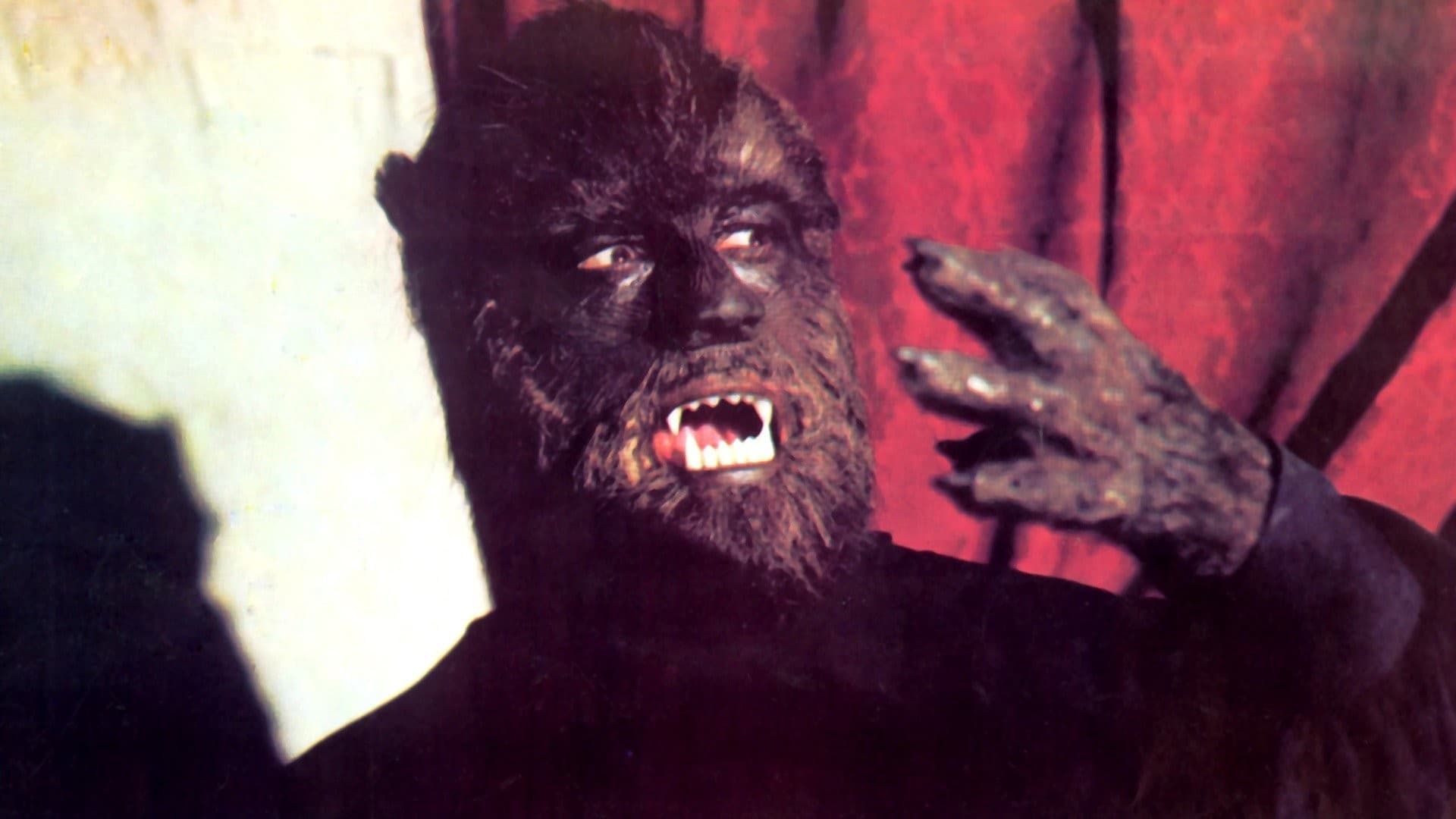

Curse of the Devil
Damn the Exorcist! The Devil won't let go!
1973 • 1h 24min • ★ 5.5/10 • Spain
Directed by: Carlos Aured
Cast: Paul Naschy, Fabiola Falcón, Mariano Vidal Molina, Maritza Olivares, José Manuel Martín
An ancient curse causes the ancestor of a witch hunter to turn into a bloodthirsty werewolf.
“The Curse” is a 1975 Japanese horror film directed by Norio Tsuruta. The original title of the film in Japanese is “Noroi no yakata: Chi o suu me,” which translates to “The Mansion of Curses: Bloodsucking Eyes.”
The film follows a young couple, Kazuhiko (played by Hiroshi Tamura) and Yuko (played by Mayumi Nagisa), who inherit a mansion from Yuko’s deceased aunt. They move into the mansion but soon discover that it is cursed.
Strange and terrifying events start occurring, and the couple finds themselves haunted by supernatural forces and malevolent spirits.
“The Curse” combines elements of traditional Japanese ghost stories with psychological horror. It creates a sense of suspense and dread through its atmospheric setting, eerie visuals, and supernatural occurrences.
The film explores themes of guilt, secrets, and the consequences of past actions.
As Kazuhiko and Yuko uncover the dark history of the mansion and attempt to break free from the curse, they face a series of chilling encounters and must confront their own fears and demons.
“The Curse” is notable for its effective use of suspense, its haunting visuals, and its ability to create a sense of unease and terror. It is considered a classic in Japanese horror cinema and has influenced subsequent films in the genre.
Please note that there are other films with the title “The Curse” released in different years and from various countries, so the information provided here specifically refers to the 1975 Japanese film.
- Amazon Prime Video (Video on Demand)
- Boyd Holbrook, Kelly Reilly, Alistair Petrie (Actors)
- Sean Ellis (Director) - Sean Ellis (Writer) - Pete Shilaimon (Producer)
- English (Playback Language)
- English (Subtitle)
4. Night of the Kings (2020)
“Night of the Kings” (French: La Nuit des Rois) is a 2020 Ivorian-French drama film directed by Philippe Lacôte.
The film is set in La MACA, a notorious prison in Abidjan, Ivory Coast, and combines elements of fantasy, folklore, and political allegory.
The story centers around a young man named Roman, who is thrown into the prison on the night of the “Red Moon.”
In this prison, a tradition known as “the Roman” takes place, where a prisoner is chosen to tell stories to the other inmates throughout the night.
Roman’s survival hinges on his storytelling ability and his ability to captivate the prisoners.
As Roman weaves his tales, reality and fiction become blurred, and the film delves into themes of power, survival, and the transformative nature of storytelling. It explores the tension between the harsh realities of life in the prison and the imaginative escape that storytelling provides.
“Night of the Kings” received widespread critical acclaim and gained international recognition. It premiered at the Venice Film Festival and was selected as Ivory Coast’s official submission for the Best International Feature Film category at the 93rd Academy Awards.
The film is praised for its mesmerizing visuals, atmospheric cinematography, and the compelling performances by its cast. It offers a unique and poetic perspective on the dynamics of power, the importance of narratives, and the resilience of the human spirit in the face of adversity.
“Night of the Kings” stands as a remarkable achievement in African cinema, showcasing the talent of director Philippe Lacôte and shedding light on the vibrant storytelling traditions of Ivory Coast.
It is a visually stunning and thought-provoking film that challenges and captivates its audience.
- Amazon Prime Video (Video on Demand)
- Koné Bakary, Steve Tientcheu, Rasmane Ouédraogo (Actors)
- Philippe Lacôte (Director) - Philippe Lacôte (Writer) - Delphine Jaquet (Producer)
- English (Playback Language)
- English (Subtitle)
5. Madame Brouette (2002)
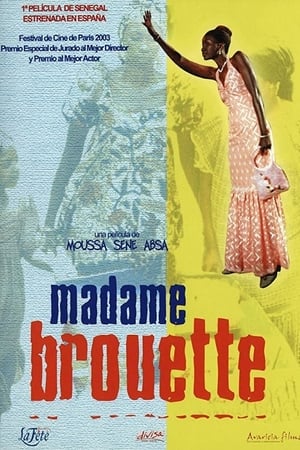
Madame Brouette
2002 • 1h 44min • ★ 5.6/10 • Canada
Directed by: Moussa Sène Absa
Cast: Rokhaya Niang, Aboubacar Sadikh Ba, Kadiatou Sy, Ndeye Seneba Seck, Akéla Sagna
Mati, a divorced mother of a young daughter, makes a living selling bric-a-bric from a wheelbarrow and dreams of opening a snack bar. But she falls for the charms of Naago, a cop, and it's only when the Tajaboom festival (at which women and men switch roles) arrives that her opportunity for escape emerges.
“Madame Brouette” is a 2002 Senegalese film directed by Moussa Sène Absa. The film tells the story of Mati, a strong-willed and resilient woman living in Dakar, Senegal.
“Madame Brouette” explores the struggles and triumphs of Mati as she faces various challenges in her life, including poverty, societal expectations, and an abusive relationship.
After a violent incident, Mati becomes a local street vendor known as “Madame Brouette,” selling goods from a wheelbarrow.
The film delves into themes of female empowerment, resilience, and the societal pressures faced by women in Senegalese society. It addresses issues such as domestic violence, gender inequality, and the resilience of the human spirit.
“Madame Brouette” received critical acclaim for its powerful storytelling, its depiction of the everyday lives of Senegalese women, and its exploration of social issues.
The film shed light on the strength and determination of its female protagonist, highlighting the importance of solidarity and self-empowerment.
Please note that my knowledge is based on information available up until September 2021, and there may have been subsequent developments or details related to “Madame Brouette” that I’m unaware of.
- Castilian (Subtitle)
- Spanish (Publication Language)
6. Black Girl (1966)
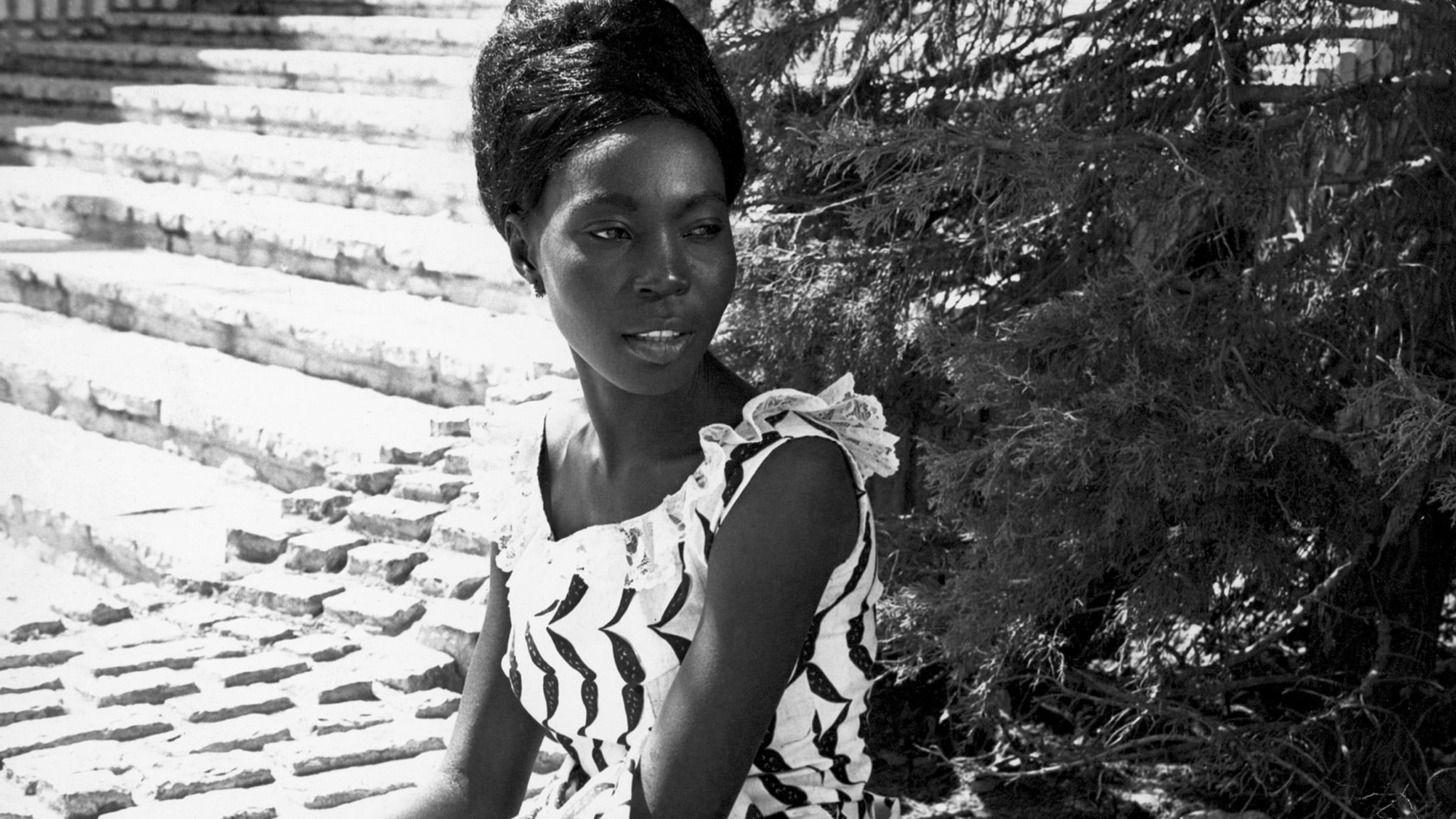
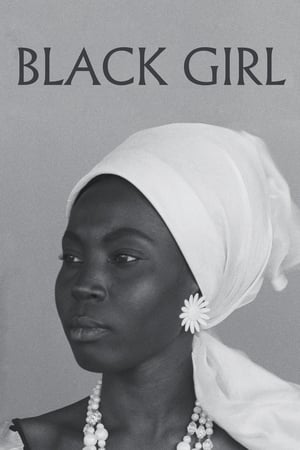
Black Girl
1966 • 1h 5min • ★ 7.3/10 • France
Directed by: Ousmane Sembène
Cast: Mbissine Thérèse Diop, Anne-Marie Jelinek, Robert Fontaine, Nar Sene, Ibrahima Boy
Eager to find a better life abroad, a Senegalese woman becomes a mere governess to a family in southern France, suffering from discrimination and marginalization.
“Black Girl” (original title: “La Noire de…”) is a Senegalese film directed by Ousmane Sembène and released in 1966. It is considered a groundbreaking work in African cinema and is often hailed as one of the key films of the postcolonial era.
The story centers around Diouana, a young Senegalese woman played by Mbissine Thérèse Diop, who leaves her homeland to work as a maid for a French family in Antibes, France.
However, her dreams of a better life quickly turn into a disillusioning reality as she faces isolation, mistreatment, and the dehumanizing effects of racism and colonialism.
“Black Girl” explores themes of identity, cultural displacement, and the power dynamics between colonizers and the colonized. It critiques the oppressive structures of French colonialism and highlights the personal and emotional toll it takes on the characters.
Ousmane Sembène’s direction in “Black Girl” is known for its powerful social commentary and its portrayal of the psychological and emotional journey of the protagonist. The film utilizes striking imagery and a restrained yet impactful narrative style to convey its message.
“Black Girl” received critical acclaim and marked a significant milestone in African cinema. It played a crucial role in establishing Sembène as one of the most influential directors in African cinema history.
The film’s exploration of postcolonial themes and its powerful depiction of the African experience resonated with audiences worldwide and solidified its place as a classic of world cinema.
- Shrink-wrapped
- M'Bissine Thérèse Diop (Actor)
- Ousmane Sembène (Director)
- English (Subtitle)
- English (Publication Language)
7. Moolaadé (2004)
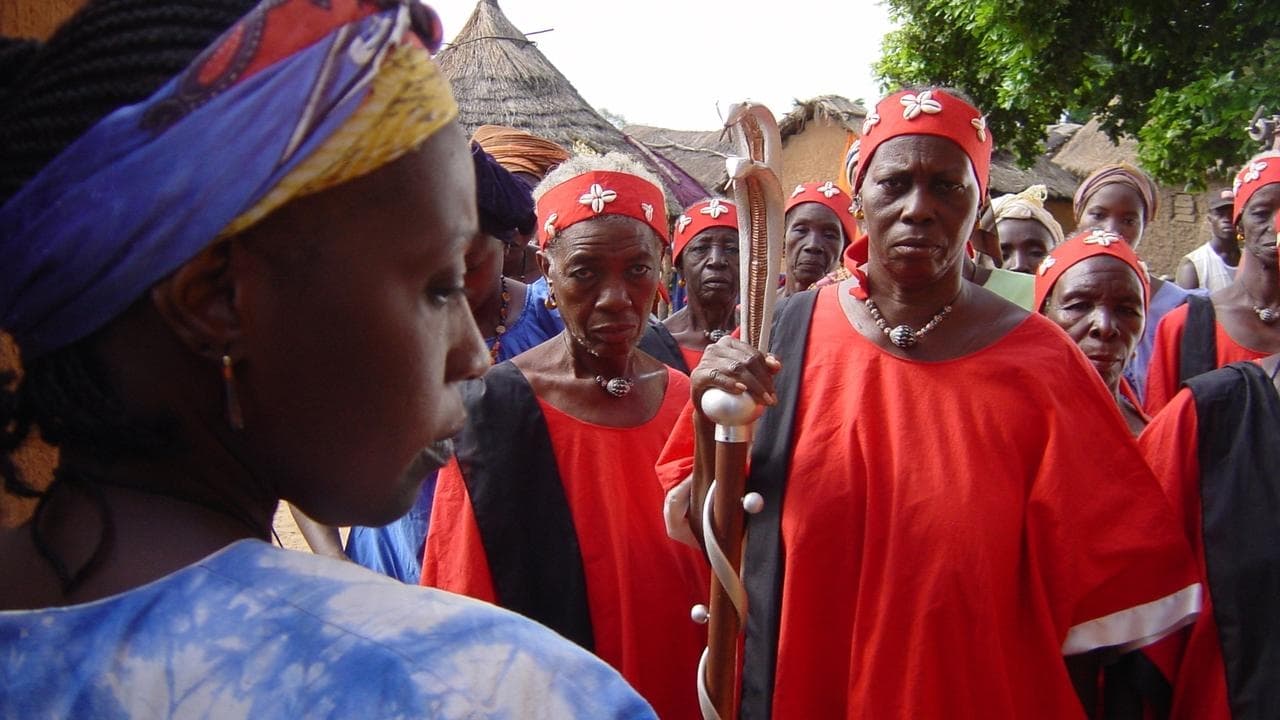
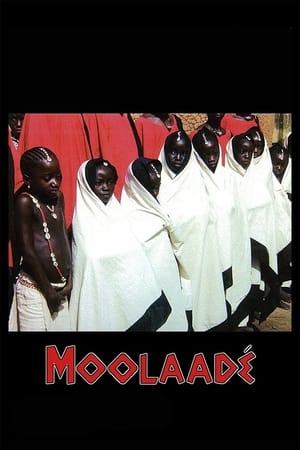
Moolaadé
2004 • 2h 4min • ★ 7.164/10 • Burkina Faso
Directed by: Ousmane Sembène
Cast: Fatoumata Coulibaly, Maimouna Hélène Diarra, Salimata Traoré, Dominique Zeïda, Rasmané Ouédraogo
When a woman shelters a group of girls from suffering female genital mutilation, she starts a conflict that tears her village apart.
“Moolaadé” is a 2004 Senegalese drama film directed by Ousmane Sembène. The film addresses the practice of female genital mutilation (FGM) in African societies and explores the themes of tradition, women’s rights, and the power of individual resistance.
“Moolaadé” centers around the character of Collé Ardo Gallo Sy (played by Fatoumata Coulibaly), a strong-willed woman who defies the prevailing cultural norms and protects a group of young girls from undergoing the harmful practice of female circumcision.
Collé’s act of defiance sets her against the village elders and confronts the deeply ingrained traditions and beliefs of her community.
The film sheds light on the harmful consequences of FGM and challenges the
It emphasizes the importance of individual agency and the necessity of breaking harmful traditions that perpetuate gender inequality and violence against women.
Ousmane Sembène’s direction in “Moolaadé” is both compassionate and critical, providing a nuanced portrayal of the characters and their motivations.
The film’s narrative is infused with vibrant colors, traditional music, and elements of magical realism, creating a captivating and culturally rich atmosphere.
“Moolaadé” received critical acclaim for its powerful storytelling and its exploration of social issues.
It won the Un Certain Regard Award at the 2004 Cannes Film Festival and garnered praise for its strong performances and its ability to engage viewers in discussions about women’s rights and cultural practices.
Through its powerful narrative and compelling characters, “Moolaadé” raises awareness about the harms of FGM and advocates for the empowerment of women to challenge oppressive traditions.
It serves as a call to action for social change and a celebration of the strength and resilience of individuals willing to stand up for justice.
- Maimouna Helene Diarra, Dominique T. Zeida, Fatoumata Coulibaly (Actors)
- Ousmane Sembene (Director)
- Audience Rating: Unrated (Not Rated)
8. L’afrance (2001)
“L’afrance” is a 2001 French drama film directed by Alain Gomis. The film explores themes of identity, immigration, and the complex relationship between France and its former African colonies.
The story revolves around El Hadj (played by Djolof Mbengue), a young Senegalese man living in Paris. El Hadj is torn between his African heritage and the desire to assimilate into French society.
As he faces the challenges of racism, cultural alienation, and the loss of his identity, he begins to question his place in both Senegal and France.
“L’afrance” offers a thought-provoking examination of the immigrant experience and the struggle to reconcile one’s cultural roots with the realities of living in a foreign country. The film addresses issues of discrimination, marginalization, and the longing for a sense of belonging.
Alain Gomis’ directorial approach in “L’afrance” combines elements of social realism with poetic and symbolic imagery. The film garnered critical acclaim for its powerful performances, evocative cinematography, and its exploration of the complexities of cultural identity.
Please note that “L’afrance” may have limited availability, especially outside of France. It is worth checking various streaming platforms or specialty DVD outlets for potential access to the film.
9. Camp de Thiaroye (1988)
“Camp de Thiaroye” is a 1988 film directed by Ousmane Sembène and Thierno Faty Sow. It is a powerful drama based on real events that took place in 1944 during World War II.
The film tells the story of a group of African soldiers who fought alongside the French army against the Axis powers in Europe.
After the war, they are stationed at a transit camp in Thiaroye, a suburb of Dakar, Senegal. The soldiers hope to be demobilized and receive their long-overdue pay. However, they face discrimination, neglect, and mistreatment at the hands of their French superiors.
“Camp de Thiaroye” delves into the themes of colonialism, racism, and the disillusionment faced by the African soldiers who fought for their colonizers.
It exposes the hypocrisy and injustice of the French military command, as well as the struggles of the soldiers to reclaim their dignity and demand fair treatment.
The film explores the complexities of identity and postcolonial politics, offering a scathing critique of the exploitation and mistreatment endured by African soldiers during and after their service.
It sheds light on a forgotten chapter of history and highlights the ongoing struggles for justice and recognition.
“Camp de Thiaroye” is known for its compelling performances, poignant storytelling, and its unflinching portrayal of the harsh realities faced by the African soldiers.
It is considered one of Ousmane Sembène’s most significant works, addressing important social and political issues within the context of postcolonial Africa.
The film serves as a powerful reminder of the injustices of the past and the ongoing fight for equality and dignity in a world shaped by colonial legacies.
- Sidiki Bakaba, Hamed Camara, Philippe Chamelat (Actors)
- Ousmane Sembene (Director)
- English (Publication Language)
- Audience Rating: Unrated (Not Rated)
10. Ceddo (1977)
“Ceddo” is a 1977 Senegalese historical drama film directed by Ousmane Sembène. The film explores themes of cultural identity, religion, and resistance against colonialism.
It is considered a landmark work in African cinema and is recognized as one of Sembène’s most significant contributions to the medium.
The film is set in the 19th century in a fictional West African village during the period of Islamic expansion and European colonization.
The story centers around a conflict between the Ceddo (or Siddo), who are traditionalists adhering to the village’s ancestral beliefs, and the Muslim elite who have adopted Islam.
“Ceddo” portrays the struggle between different religious and cultural factions as they vie for power and control over the village.
The Ceddo, who represent the indigenous African traditions and resistance against colonial influence, face the encroachment of Islam and the presence of European colonizers.
Sembène explores the clash between tradition and modernity, the erosion of African cultural heritage, and the impact of colonization on local communities.
The film raises questions about the preservation of cultural identity and the resistance against external forces that threaten to undermine it.
“Ceddo” is renowned for its visual storytelling, powerful performances, and its use of symbolism and allegory to convey its messages.
It was one of the earliest films to challenge the dominance of European perspectives in African cinema and present a nuanced portrayal of African history and culture from an African perspective.
The film received critical acclaim and was well-received at international film festivals. It remains an important work in African cinema, highlighting the talents and social commentary of Ousmane Sembène, who is widely regarded as the “father of African cinema.”









![Black Girl (The Criterion Collection) [DVD]](https://m.media-amazon.com/images/I/41vtV5s7EFL.jpg)





